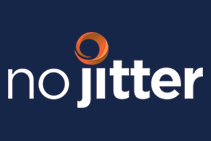After 20 years of truly remarkable growth, the UCaaS market is about to improve. Dramatic market shifts are afoot. This post will look at big bets -- almost stealth today -- that will handsomely pay off for vendors and end users over the next three years.

Eastern Management Group recently completed a four-year study of the UCaaS market and published the research in a new report, "Worldwide Hosted PBX Market 2017-2022." With market data from more than 3,500 IT managers studied worldwide, we are presenting some of our research in this post, the final installment in an eight-part UCaaS series.
Big Bet No. 1: Mobile UCaaS
Employees move around. Forty percent of conference calls originate on a mobile instrument. Other calls that begin on a deskphone often go mobile partway through, as participants move from one location to the next. A collaboration call, say with slide-sharing or a video conference, may originate on a 4G wireless network. As the worker travels so does the call, maybe to 3G or 2G. The call is quite likely to be dropped on wireless network handoffs.
For two decades all hosted UC systems rolled out with the landline network in mind. While these UCaaS systems may handle mobile calls, they aren't native mobile. Hosted PBX service provider engineers aren't wireless network experts in, say, LTE, VoLTE, and VoWi-Fi. Mobile QoS isn't part of the offer. Customers aren't receiving mobile VIP treatment. There are no on-demand class-of-service possibilities for the mobile employee. The bottom line is who is watching the wireless network calls for these 200 or so UCaaS providers? And to reiterate, 40% of conference calls originate on a mobile instrument.
Enter mobile UCaaS. It is native mobile. It is altogether different from original UCaaS. And it is the new hosted UC solution from, you got it, mobile network operators.
There are 1,000 mobile network operators worldwide. They have five billion unique subscribers, and are supporting enough wireless phones, laptops, and tablets equivalent to one mobile device for every person on the planet.
Unfortunately for the wireless carriers, they have practically tapped out their business for new customers and revenue. Carrier growth has slowed. Enormous new revenue sources are needed today.
Mobile UCaaS picks up here. The platform is well suited for key technologies like collaboration, conferencing, and messaging. The versatility of mobile UCaaS makes it a feature rich way to hoist ARPU for mobile operators. All the while, the service is delivering uninterrupted customer productivity.
Mavenir, with about 250 mobile network operator customers, is an example of a native mobile platform company about to shape the mobile UCaaS market.
Big Bet No. 2: Vertical Industry Marketing
Vertical industry marketing will represent the largest change to UCaaS between 2018-2020 in our opinion. It will be integral to the expansion of the market, the launching of startups, and the life blood of incumbents. These are our observations:
- The hosted PBX market is currently saturated with commodity providers
- Industry marketing is an onramp to differentiation
- Each vendor can distinguish itself with vertical industry solutions
- Providers can pursue markets for which they're best suited
- Vertical market solutions can increase ARPU from all users
- Industry marketing is an uncrowded market entry point for new vendors
Many hosted PBX companies will target vertical industries that already are major UCaaS users (see chart below) and committed to spending more in years to come.

There are thousands of vertical industry UCaaS features, APIs, integrations, premises and network equipment products, services, managed services, and network options for vertical markets. As vendors move up the value chain from SMB to midmarket to enterprise customers, they also can offer architecture services, from systems integration to solution planning, designing, and implementation.
This is the final piece in an eight-part biweekly series based on research from Eastern Management Group's exhaustive "Worldwide Hosted PBX Market 2017-2022" report. For earlier segments, see:
For questions about the hosted PBX study please ask Eastern Management Group researchers.









